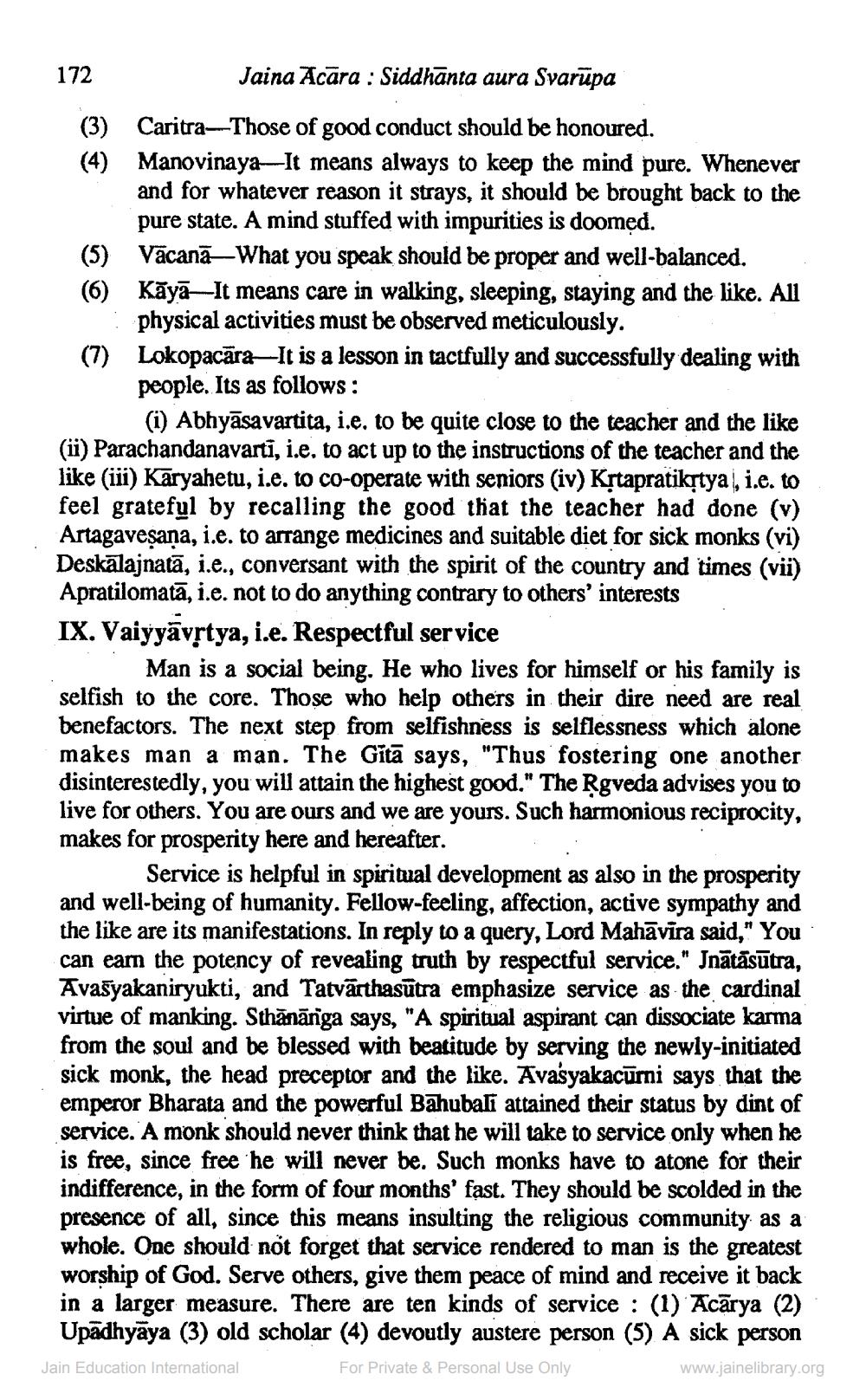________________
172
Jaina Acara : Siddhānta aura Svarüpa (3) Caritra-Those of good conduct should be honoured. (4) Manovinaya-It means always to keep the mind pure. Whenever
and for whatever reason it strays, it should be brought back to the
pure state. A mind stuffed with impurities is doomed. (5) Vacanã What you speak should be proper and well-balanced. (6) Kāyā It means care in walking, sleeping, staying and the like. All
physical activities must be observed meticulously. (7) Lokopacāra It is a lesson in tactfully and successfully dealing with
people. Its as follows:
(i) Abhyāsavartita, i.e. to be quite close to the teacher and the like (ii) Parachandanavartī, i.e. to act up to the instructions of the teacher and the like (iii) Karyahetu, i.e. to co-operate with seniors (iv) KytapratikȚtya , i.e. to feel grateful by recalling the good that the teacher had done (v) Artagaveşana, i.e. to arrange medicines and suitable diet for sick monks (vi) Deskālajnatā, i.e., conversant with the spirit of the country and times (vii) Apratilomatā, i.e. not to do anything contrary to others' interests IX. Vaiyyāvrtya, i.e. Respectful service
Man is a social being. He who lives for himself or his family is selfish to the core. Those who help others in their dire need are real benefactors. The next step from selfishness is selflessness which alone makes man a man. The Gitā says, "Thus fostering one another disinterestedly, you will attain the highest good." The Rgveda advises you to live for others. You are ours and we are yours. Such harmonious reciprocity, makes for prosperity here and hereafter.
Service is helpful in spiritual development as also in the prosperity and well-being of humanity. Fellow-feeling, affection, active sympathy and the like are its manifestations. In reply to a query, Lord Mahāvīra said," You can earn the potency of revealing truth by respectful service." Inātasutra, Avagyakaniryukti, and Tatvārthasūtra emphasize service as the cardinal virtue of manking. Sthānāniga says, "A spiritual aspirant can dissociate karma from the soul and be blessed with beatitude by serving the newly-initiated sick monk, the head preceptor and the like. Avasyakacūrni says that the emperor Bharata and the powerful Bahubali attained their status by dint of service. A monk should never think that he will take to service only when he is free, since free he will never be. Such monks have to atone for their indifference, in the form of four months' fast. They should be scolded in the presence of all, since this means insulting the religious community as a whole. One should not forget that service rendered to man is the greatest worship of God. Serve others, give them peace of mind and receive it back in a larger measure. There are ten kinds of service : (1) Acārya (2) Upadhyāya (3) old scholar (4) devoutly austere person (5) A sick person Jain Education International For Private & Personal Use Only
www.jainelibrary.org




